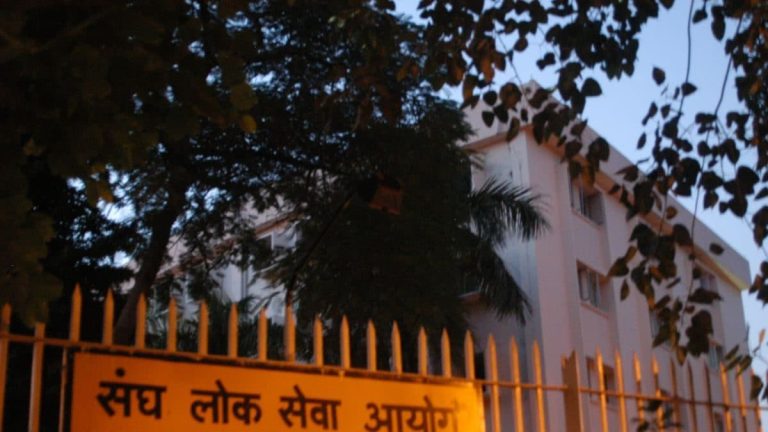Publisher:
Last updated:

Images shown are for reference only. (Courtesy of Getty Images)
The move is significant as the commission had last month canceled the provisional candidature of IAS trainee officer Puja Khedkar and barred her from appearing in all future examinations.
In a first, the Center on Wednesday allowed the Union Public Service Commission (UPSC) to implement Aadhaar-based identity verification on a voluntary basis to verify the identity of candidates, both at the time of registration and at various stages of examination and recruitment.
The move is significant as the commission had last month canceled the provisional candidature of IAS trainee officer Puja Khedkar and barred her from appearing in all future examinations as she was ineligible in the civil services examination.
Khedekar has also been accused of abusing the Disabled and Other Backward Classes or OBC (Other Creamery Class) quota among others.
The Ministry of Personnel said in the notification that UPSC “may conduct Aadhaar identity verification on a voluntary basis to verify the identity of candidates at the time of registration on the 'One-time Registration' portal and at various stages of examination/recruitment testing using Yes/No or /and e-KYC identity verification facility”.
The Commission shall comply with the Aadhaar (Targeted Provision of Financial and Other Subsidies, Benefits and Services) Act, 2016, the “Rules and Regulations made thereunder” and the Unique Identification Authority of India (UIDAI), notification added.
Aadhaar is a 12-digit number issued by UIDAI to all eligible citizens based on biometric and demographic data.
The UPSC had initiated a series of actions against Khedkar in July, including registering a forgery case against her for allegedly trying to appear in the civil services examination by forging her identity. Subsequently, the Delhi Police registered a case and started investigation.
Khedekar, who was provisionally posted to the Indian Administrative Service (2023, Maharashtra cadre), was accused of abusing her power and privileges during her training in Pune.
In June, UPSC also decided to use facial recognition and artificial intelligence-based CCTV surveillance system to prevent cheating and impersonation in various tests.
Through the tender document, it invited bids from experienced public sector players to design two technology solutions – “Aadhaar-based fingerprint authentication (additional digital fingerprint capture) and facial recognition of candidates and QR code for e-admission tickets” Scanning” and “real-time artificial intelligence” based CCTV surveillance service” – used during the exam.
UPSC conducts 14 major examinations every year, including the famous Civil Service Examination, to select officers of the Indian Administrative Service (IAS), Indian Foreign Service (IFS) and Indian Police Service (IPS). In addition, it also conducts some recruitment examinations and interviews every year. Group “A” and “B” jobs in Central Government.
Lakhs of candidates emerge in such recruitments conducted across the country.
(This report has not been edited by News18 staff and is published from associated news agency – PTI)
